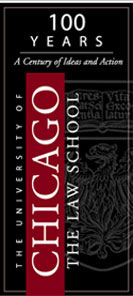|
Among the many unusual characters populating the Law School faculty
in 1949, one who stands out vividly in my memory is our first-year
Property
Professor, Sheldon Tefft, a Nebraska native who, I believe, was
among the
first Americans to receive a law degree from Oxford. Sheldon's
overbearing
manner and stentorian speech (in a faux Oxford accent strongly
colored by
Midwestern overtones) terrorized our 1L class mainly comprised
of WWII
veterans--one could detect a quaver in virtually every response
to his
intense Socratic questioning. Indeed, even an ego as stalwart
as that of
George Steiner (now a Cambridge don and renowned critic) who audited
several
of Sheldon's classes while seeking a Rhodes scholarship, acknowledged
being
cowed in that classroom atmosphere. Notwithstanding widespread
rumors that
Professor Tefft believed the Anglo-American law of property had
reached it
culmination with enactment of the Statute de Donis, he effectively
instilled
in us the fundamentals of 19th century real estate practice. [
However,
most of us thought it advisable in our third year to take the
course
entitled "Modern Real Property" offered by Allison Dunham,
who had recently
relocated from Columbia.] What a surprise to discover Sheldon's
true
character upon visiting the School a few years later--he had become
a "Teddy
Bear", conveying to this graduate great personal warmth and
genuine interest
in the development of our professional careers matched only by
another dear
mentor, Bernie Meltzer. Perhaps Sheldon was preparing us for future
encounters with courtroom autocrats.
In a more serious vein were some extraordinary decisions which
confronted the editors of the Law Review in my third year. I am
particularly
proud of our having published the now famous article by Professors
Kalven
and Blum entitled "The Uneasy Case for Progressive Taxation",
a seminal
essay on tax equity which has been cited extensively and reprinted
several
times in the intervening years. What made this decision difficult
was not
the quality of the work, but rather its virtually exclusive reliance
on
economic and philosophical considerations as distinguished from
legal
precedents and authorities-- an approach foreign to the law review
traditions of the time--as well as its sheer length, which required
dedicating the entire articles section of the issue [number 3,
Spring 1952]
to this single work.
Also noteworthy were two decisions by the Review's editorial
board
to reject certain unsolicited manuscripts: (1) a defense by alumnus
George
Anastaplo of his refusal to answer whether he was a member of
an
organization advocating violent overthrow of the government which
had
resulted in denial to him of a license to practice law in Illinois
and (2)
an article on antitrust law by then Dean Edward Levi. The former
became
something of a cause celebre, particularly among members of the
immediately
preceding editorial board who had been Anastaplo's classmates
and were not
reluctant to share their favorable opinions with us. Moreover,
we were
subjected to considerable lobbying both for and against publication
by
esteemed members of the faculty. Notwithstanding these efforts
to intrude
on our editorial independence, Anastaplo was advised that his
article would
not be published without extensive re-writing, beyond even our
rather
presumptuous editorial prerogative, which the author refused to
do. A
similar decision was communicated to Dean Levi who responded with
characteristic taciturnity, promptly submitting his manuscript
to
Northwestern Law Review where it was published without revision.
|



